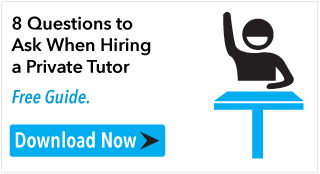We’re taught to be modest – not to brag or talk too much about ourselves. But when you write your college essay, you’re forced to do the exact opposite, and that shift...
Why You Must Stick to 650 Words in Your Personal Statement
 The Common Application sets a 250-650 word limit for the length of your personal statement. It may feel like it’s impossible to say everything you need to say about yourself in 650 words or less, but complying with this rule is about more than just word counting. It’s a life lesson.
The Common Application sets a 250-650 word limit for the length of your personal statement. It may feel like it’s impossible to say everything you need to say about yourself in 650 words or less, but complying with this rule is about more than just word counting. It’s a life lesson.
Disregarding the instructed word limit could come across as indicative of a lack of attention to detail and an inability to follow instructions. This will not be the last time in your life that someone will ask you to follow specific instructions. Doing it your way, even if you believe it’s “better that way,” might seem like the right thing to do, but it can also connote disrespect for the person asking. When you submit an application, you have not yet earned the trust to discount the rules set by people who control whether or not you are admitted to the school (or job). The unintended subtext becomes, “I think I know better than you.”
It tells admissions committees that you don’t respect the effort they are going to put into reading your essay, as well as that of your fellow applicants, because you’re demanding extra time and attention. Not following the set guideline is handing the admissions counselors a reason to eliminate you from consideration. With so many applicants, dismissing someone who didn’t follow instructions is an easy way to pare down the pile of applications so they can devote more attention to the people who did.
Being limited to 650 words also requires that you be more discerning with which details you include in your essay. It can help you focus and sharpen your writing. How can you express the essence of your story in fewer words? Again, this is a skill that will serve you in all aspects of your life. Being able to convey your points concisely will help readers or listeners stay focused on your message without getting bored or distracted by rambling prose.
Write a long first draft. Include every possible detail that you might want to use to enhance your personal statement. Then cut anything that digresses rather than contributes to the plot or theme. Ask yourself if each word, thought, or anecdote is necessary. If so, how can you express it in the most economical way possible? I recommend Ray Bradbury short stories as a fantastic example of this kind of writing. He was able to convey an incredible amount of humanity and character despite the brevity of his stories and sentences.
Adverbs are a good place to start with edits. Instead of using a verb and adverb combination, find a more specific verb so the adverb is unnecessary – “Shouted” instead of “said angrily.” Challenge yourself to make better word choices. Use your thesaurus and your dictionary. Make sure the words you use actually mean what you think they mean. Check for repeated words and use synonyms so your writing isn’t repetitive.
Cut any words that are implied by context – “suddenly,” “it seemed,” etc. Cut clichés. You’re trying to stand out, and you won’t if you use tired phrases as a shortcut to conveying your point. Play with sentence structure. Use active voice rather than passive whenever possible to make your writing more dynamic and to eliminate extra words. Read your essay out loud to find points where the narrative drags or phrasing is awkward.
Take some time to think about the impression of yourself you want to leave with this personal statement. It’s your best chance to inject some personality into your application, so choose your words wisely.

